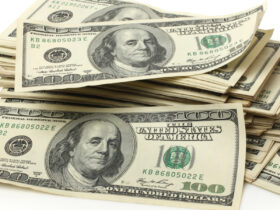Great article from the “Soveriegn Man” blog:
Warren Buffett minced no words in his most recent annual shareholder letter (which came out over the weekend) when he told investors that “retirees face a bleak future.”
Buffett was referring to the pitifully low interest rates that dominate fixed income investments (like bonds and annuities).
In September 1981, he writes, investors could buy a 10-year US government bond yielding nearly 16%.
Now, inflation was a lot higher in the 1980s than it is today. But even after adjusting for inflation, the average annual yield for any investor who held that 1981 bond to maturity over the next decade would have been 5.7% per year.
Today, that same 10 year bond yields just 1.4%. But the official inflation rate in the United States is also 1.4%. This means that, after adjusting for inflation, your net yield today is ZERO.
I have talked about this before. I recall the days when I was a kid my grandparents taking their money out of the bank and investing directly in 90 day T-bills that paid double digit interest rates.
They could achieve a nice income from their savings with minimal risk.
Because of the FED and government’s mismangement and central control of rates that is impossible today. If you are in bonds of any kind you are going to understand why they were called “certificates of confiscation” during the high inflation periods of the late 1970’s.
Retirees and those that should be minimizing risk (pension funds, insurance companies, endowments, etc..) are being forced further out on the risk curve in order to try and make a suffcient return to pay their obligations.
The article discusses this.
Anyone who actually wants to earn a halfway decent return on investment must now seek out riskier and more volatile assets.
Stocks are the next best choice for most people. But the stock market has become absurdly overpriced. There are still undervalued gems, but they’re more and more difficult to find.
Coca Cola is a great example of how overpriced the market is; Coke’s earnings actually peaked in 2010, more than a decade ago. At that time, the company earned $2.53 per share and had $14 billion in long-term debt.
Its earnings have been in decline ever since. Last year Coca Cola earned $1.79 per share, a decline of 30% from its peak in 2010. And over the same period its long-term debt has nearly tripled to $40 billion.
Revenue is down, earnings are down, free cash flow is down, debt is up. Any rational person would look at this data and conclude that Coca Cola’s stock price should have been in the dumps since 2010.
But that’s not the case. Coke stock has more than doubled, and it’s not far off from its all-time high.
It is time to realize what is happening and take charge. There are always alternatives but one must be educated about them and what risks they entail.





